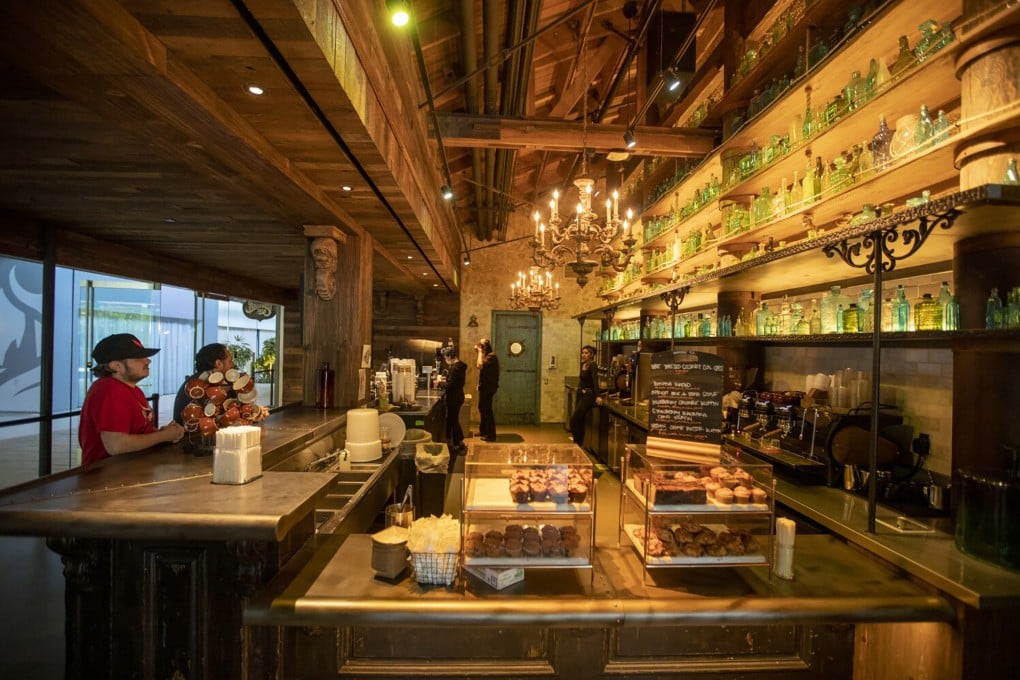A peek inside League of Legends creator Riot Games’ Los Angeles HQ, and why it’s not like your average workplace
- League of Legends is a popular online game, played by millions, and was created and developed by Riot Games, based in Los Angeles
- Riot Games has just expanded its headquarters, which now boasts two cinemas, a themed cafe, a huge games library, and free food and drinks

An arresting aroma of coffee and bourbon envelops visitors long before they walk into Bilgewater Brew.
The coffeehouse has cheery baristas and a pastry chef who prepares snacks such as vegan, keto and gluten-free muffins.
The theme is pirate/nautical, with dripping water sound effects.
Customers settle into tall booths made from old bourbon barrels still wafting their tangy caramel scent, adding smell to the sensory recreation of Bilgewater, a dangerous port city in the mythical universe of video game League of Legends.
The game is an online juggernaut, played around the clock and around the globe by millions of fans since 2009 while spinning off popular related properties including esports tournaments and a television show for its creator, Riot Games.
But, like Bilgewater’s murky streets, the coffee shop isn’t a place you can drop by in real life because it exists inside the newly expanded Riot Games headquarters as a no-money-required perk for employees and guests.
